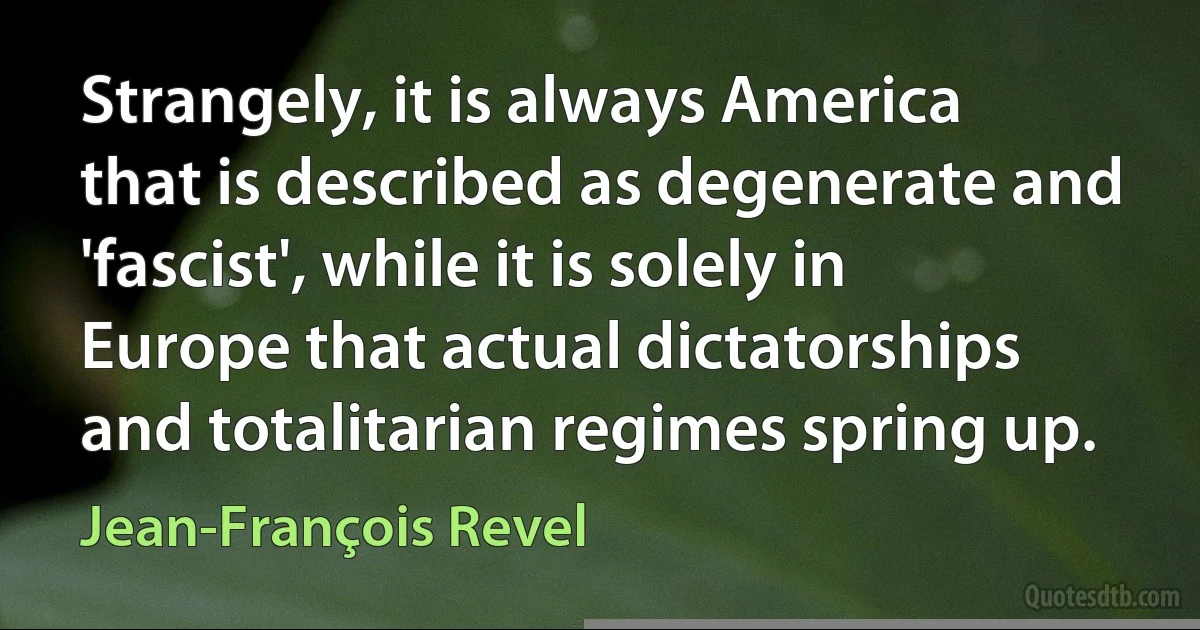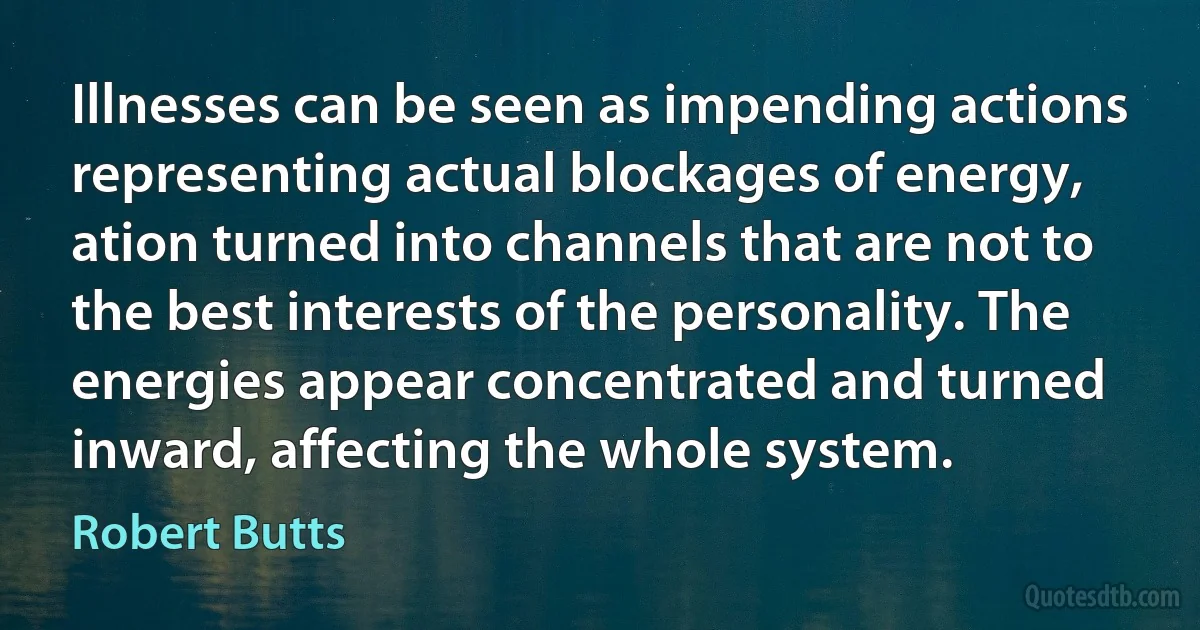Actual Quotes - page 20
I know not whether, at the time, it was not for him rather than myself that I blushed; for, since he and I are one, I so identify myself with him, that I feel his degradation, his failings, and transgressions as my own; I blush for him, I fear for him; I repent for him, weep, pray, and feel for him as for myself; but I cannot act for him; and hence, I must be and I am, debased, contaminated by the union, both in my own eyes, and in the actual truth.

Anne Brontë
Hayek sees that the zero-sum vision is fired by an implacable negative energy. It is not the concrete vision of some real alternative that animates the socialist critic of the capitalist order. It is hostility toward the actual, and in particular toward those who enjoy advantages within it. Hence the belief in equality remains vague and undefined, except negatively. For it is essentially a weapon against the existing order – a way of undermining its claims to legitimacy, by discovering a victim for every form of success. The striving for equality is, in other words, based in ressentiment in Nietzsche's sense, the state of mind that Max Scheler identified as the principal motive behind the socialist orthodoxy of his day. It is one of the major problems of modern politics, which no classical liberal could possibly solve, how to govern a society in which resentment has acquired the kind of privileged social, intellectual, and political position that we witness today.

Roger Scruton
Call me either Colonel or Doctor. Hearing both titles gives me a split personality, the two philosophies differing so widely. It is medicine's philosophy that lives should be saved, of all sorts. It is our military's philosophy that as long as a few cells are kept alive, actual lives may be dispensed with. A few inches of gut in a bottle is not, to my mind, a life, no matter what theological contortions one puts oneself through.

Sheri S. Tepper
As the glossaries lengthen, as the footnotes become more elementary and didactic, the poem, the epic, the drama, move out of balance on the actual page. As even the more rudimentary of mythological, religious or historical references, which form the grammar of Western literature, have to be elucidated, the lines of Spenser, of Pope, of Shelley or of Sweeney Among the Nightingales, blur away from immediacy. Where it is necessary to annotate every proper name and classical allusion in the dialogue between Jessica and Lorenzo in the garden at Belmont, or in Iachimo's stealthy rhetoric when he emerges in Imogen's bedchamber, these marvellous spontaneities of enacted feeling become "literary" and twice-removed.

George Steiner
In the United States dramatically, here fortunately much less so, the book store as we have known it is dying. In the United States it is now largely an emporium, featuring music, records, Christmas cards, a large range fo semi-cultural and kitsch products with books fighting for their actual spatial lives. In some of the great university towns such as New Haven, or Princeton, within the past decade, the last good book stores have had to close, and what we have now are text book emporia which are not book stores, but store-houses bracketed according to set reading lists: in other words-where there is none of the genius of waste which a great book store has, where you cannot find what you are not looking for, which is the very essence of a book store.

George Steiner
Do the identifications with fictions, the inner, tidal motions of pathos and libido which the novel, the film, the painting, the symphony unleash within us somehow immunize us against the humbler, less formed, but actual claims of suffering and of need in our surroundings? Does the cry in the tragic play muffle, even blot out, the cry in the street?

George Steiner
But, whenever a portion of this facility we may suppose even the greatest Poet to possess, there cannot be a doubt that the language which it will suggest of him, must, in liveliness and truth, fall far short of that with is uttered by men in real life, under the actual pressure of these passions, certain shadows of which the poet thus produced, or feels to be produced, in himself. However exalted a notion we would wish to cherish of the character of a Poet, it is obvious, that, while he describes and imitates passions, his situation is altogether slavish and mechanical, compared with the freedom and power of real and substantial action and suffering.

William Wordsworth
The actual expense of your colleges appears to have been very low, and would have been far lower if their patronage had been greater. The higher education nowadays is as cheap as the lower, as all grades of teachers, like all other workers, receive the same support. We have simply added to the common school system of compulsory education, in vogue in Massachusetts a hundred years ago, a half dozen higher grades, carrying the youth to the age of twenty-one and giving him what you used to call the education of a gentleman, instead of turning him loose at fourteen or fifteen with no mental equipment beyond reading, writing, and the multiplication table.

Edward Bellamy
What the structure of Rawls's argument indicates is a more fundamental feature of his thought. This is an amphibious world, which contains just enough land of real social reference to avoid the tricky deeps of first philosophy (the gesture is roughly: let's start out from where we're at – in other words, Bush–Clinton country), while floating carefully enough on the waters of abstraction to avoid contact with the ground of actual political change (for example: what has happened in the US since the 1970s). The result is a kind of political cabotage, a critique of existing society that clings nervously to its shores. Readers of Rawls might well ask: where is the actual justice in the United States that corresponds to the ideal construct he offers us, if it is based on ‘plain truths widely accepted by citizens'?

Perry Anderson
That it was actual and serious in France as in the Senate Chamber at Washington, proved itself at once by forcing Adams to buy an automobile, which was a supreme demonstration because this was the form of force which Adams most abominated. He had set aside the summer for study of the Virgin, not as a sentiment but as a motive power, which had left monuments widely scattered and not easily reached. The automobile alone could unite them in any reasonable sequence, and although the force of the automobile, for the purposes of a commercial traveller, seemed to have no relation whatever to the force that inspired a Gothic cathedral, the Virgin in the twelfth century would have guided and controlled both bag-man and architect, as she controlled the seeker of history.

Henry Adams
...he took his lesson of political morality as learned, his notice to quit as duly served, and supposed his education to be finished.Everyone thought so, and the whole City was in a turmoil. Any intelligent education ought to end when it is complete. One would then feel fewer hesitations and would handle a surer world. The old-fashioned logical drama required unity and sense; the actual drama is a pointless puzzle, without even an intrigue. When the curtain fell on Gladstone's speech, any student had the right to suppose the drama ended; none could have affirmed that it was about to begin; that one's painful lesson was thrown away.

Henry Adams
Society swarmed with exaggerated characters; it contained little else.Often this eccentricity bore all the marks of strength; perhaps it was actual exuberance of force, a birthmark of genius. Boston thought so. The Bostonian called it national character - native vigor - robustness - honesty - courage. He respected and feared it.

Henry Adams
From infinite probable acts, comma, only one can be physically experienced as a rule, period. The dream world operates as a creative situation in which probable acts are instantly materialized, laid out in actual or symbolic form. From these you then choose the most appropriate for physical expression.

Robert Butts
The effect of any thought is quite precise and definite and set into motion because of the nature of its own electromagnetic identity. The physical body operates within certain electromagnetic patterns and is adversely affected by others. These effects change the actual molecular structure of the cells, for better or worse, and because of the laws of attraction, habitual patterns will operate. A destructive thought, then, is dangerous not only to the present state of the organism, but is also dangerous in terms of the 'future.'

Robert Butts
If Utrillo's paintings depicted actual scenes from life, if they were not imaginative pictorial fantasies, then the whole world would have had to be completely different. If Utrillo's representation was valid, then it would mean that mankind had regressed to an astonishing, almost unbelievable degree. All the things that Fitch believed man capable of enjoying -- dignity, solitude, integrity -- would have been experienced in the past. And that, he thought, was impossible. If men had ever possessed these benefits, they would never have given them up.

Robert Butts
It is the historical mind, rather than the scientific (in the physicist's sense), that destroyed the mythical orientation of European culture; the historian, not the mathematician, introduced the "higher criticism," the standard of actual fact. It is he who is the real apostle of the realistic age. Science builds its structure of hypothetical "elements" and laws of their behavior, touching on reality at crucial points.... But the historian does not locate known facts in a hypothetical, general pattern of processes; his aim is to link fact to fact, one unique knowable event to another individual one that begot it.

Susanne Langer
The men in the laboratory... cannot be said to observe the actual objects of their curiosity at all. ...The sense data on which the propositions of modern science rest are, for the most part, little photographic spots and blurs, or inky curved lines on paper. ...What is directly observable is only a sign of the "physical fact"; it requires interpretation to yield scientific propositions.

Susanne Langer
If this were true, the population of the world would be at a stand-still. In truth, the rate of birth is slightly in excess of death. I would suggest that the next edition of your poem should read: "Every moment dies a man, every moment 1 1/16 is born.” Strictly speaking, the actual figure is so long I cannot get it into a line, but I believe the figure 1 1/16 will be sufficiently accurate for poetry.

Charles Babbage



